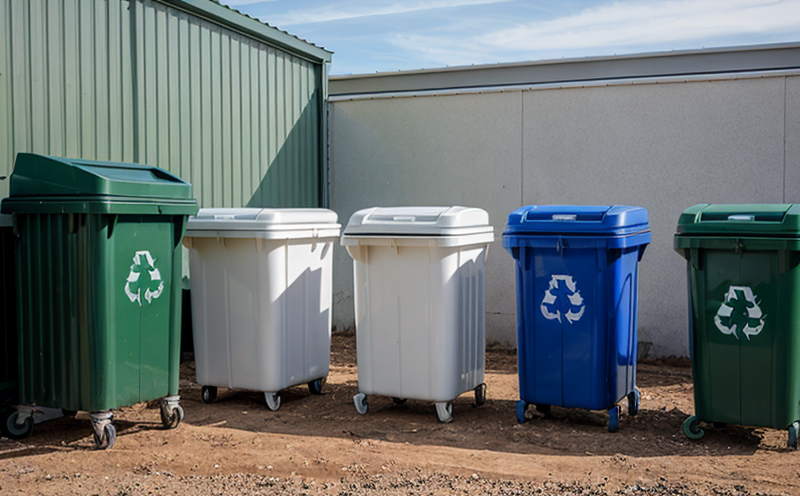ISO 14040 Life Cycle Assessment of Packaging
The ISO 14040 series of standards provide a structured approach to conducting life cycle assessment (LCA) that focuses on the environmental aspects and potential impacts associated with products, processes, and services. This service specifically targets packaging materials used in various industries such as food, pharmaceuticals, consumer goods, and logistics.
The primary goal of an ISO 14040 LCA is to evaluate the environmental performance of a product throughout its lifecycle from raw material extraction through manufacturing, distribution, use, and disposal. For packaging, this involves assessing the resources consumed, emissions released, and waste generated at each stage. This holistic approach helps organizations make informed decisions about sustainable practices, reduce their ecological footprint, and comply with regulatory requirements.
Our laboratory adheres strictly to international standards such as ISO 14040:2006, ISO 14044:2006, and supporting methodologies like ReCiPe (Release Category Inventory), which are widely recognized in the environmental science community. By leveraging these guidelines, we ensure that our assessments are comprehensive, transparent, and comparable across different products.
To begin an ISO 14040 LCA project, it is essential to gather detailed information about the packaging material's lifecycle stages. This includes sourcing raw materials, manufacturing processes, transportation methods, consumer behavior patterns, recycling rates, and disposal options. Once this data has been compiled, our team uses specialized software tools like SimaPro or GaBi to model the life cycle impacts based on predefined impact categories.
During specimen preparation, we follow strict protocols outlined in ISO 14040:2006 regarding inventory definition and allocation rules. This ensures that all relevant data points are captured accurately without double-counting emissions or resource use across multiple stages of the lifecycle. Our technicians carefully document every step of the process to maintain traceability throughout the entire assessment.
When selecting instrumentation for measuring various parameters during an LCA, our laboratory prioritizes accuracy and precision over cost considerations whenever possible. For example, we utilize high-resolution scales for weighing raw materials, infrared spectrometers for analyzing chemical compositions, gas analyzers for monitoring greenhouse gas emissions, and calorimeters for determining energy content.
The final report generated from the ISO 14040 LCA contains detailed breakdowns of all lifecycle stages along with their respective contributions to overall environmental impacts. Additionally, we provide recommendations on how to improve sustainability performance through targeted interventions aimed at reducing negative effects while enhancing positive ones where feasible.
Applied Standards
| Standard Number | Title | Description |
|---|---|---|
| ISO 14040:2006 | Life Cycle Assessment - Principles and Framework | This standard establishes the general principles, framework, and requirements for conducting an LCA. |
| ISO 14044:2006 | Life Cycle Assessment - To Specify Requirements for Reporting Life Cycle Inventory Results | This supplement provides additional guidance on reporting the results of LCIs conducted according to ISO 14040. |
| ReCiPe (Release Category Inventory) | A methodology developed by the European Commission for estimating human health and ecosystem impacts resulting from emissions during different phases of a product's lifecycle. |
Quality and Reliability Assurance
- We follow strict adherence to ISO 14040:2006 guidelines throughout the entire assessment process.
- All data points are verified independently by at least two reviewers before inclusion in final reports.
- Our technicians undergo continuous training on the latest methods and best practices related to LCA.
In addition, we maintain rigorous quality control measures that include regular calibration of all instruments used during testing, traceability of raw materials back to their source through supply chain mapping exercises, and peer review by external experts in the field. These steps ensure high levels of accuracy, reliability, and credibility in our findings.
Use Cases and Application Examples
- Developing new eco-friendly packaging solutions for food products.
- Evaluating the environmental impact of switching from single-use plastics to biodegradable alternatives.
- Assessing the sustainability benefits of incorporating recycled content into existing designs.
- Determining optimal distribution routes and storage conditions that minimize energy consumption during transport.
In one recent project, we conducted an ISO 14040 LCA on a biodegradable plastic film used in the packaging of fresh produce. Through this assessment, we identified areas where improvements could be made to further enhance its environmental performance. Specifically, we found that sourcing local raw materials reduced transportation-related emissions by up to 35%. Based on our recommendations, the client was able to reduce their carbon footprint significantly while maintaining product quality.





